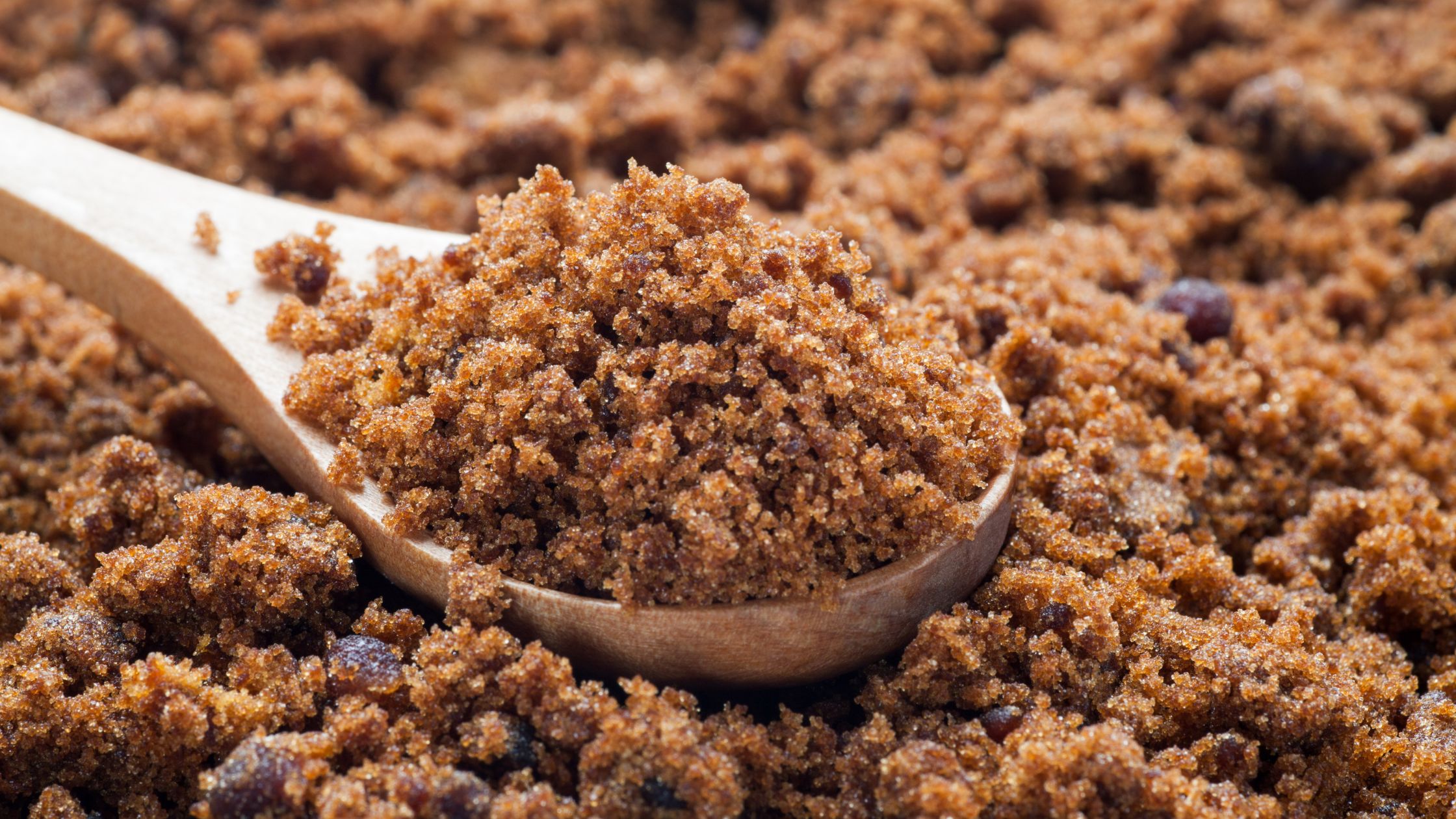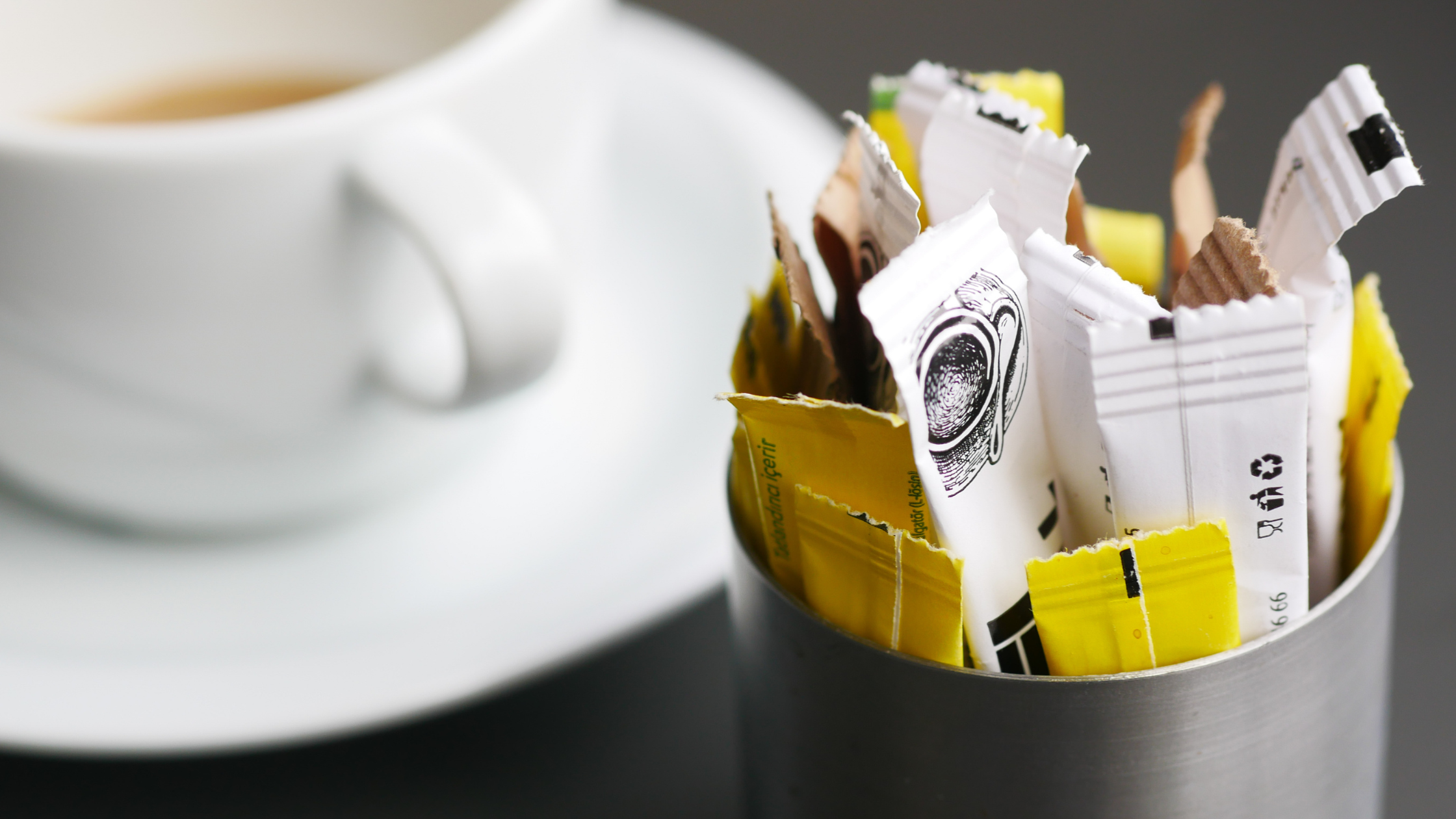While many individuals opt for artificial sweeteners such as Splenda in their pursuit of weight loss, recent studies suggest a contradictory outcome: these sweeteners may actually heighten one's appetite, leading to increased food consumption.
Furthermore, for those seeking to regulate their blood sugar levels with non-caloric sweeteners, it's important to recognize that these products can negatively impact the composition of your gut microbiome, potentially impairing your body's ability to respond to glucose.
In this blog post, we'll explore the intricacies of Splenda, a popular sweetener used in a wide array of food products, shedding light on what you should be aware of when it comes to its use and potential effects.
What is Sucralose?
Sucralose, the artificial sweetener approximately 600 times sweeter than sugar, is the primary component of Splenda. It's found in over 4,500 products, from diet sodas to sugar-free gum and baked goods. The manufacturer has declared sucralose safe, but it's essential to scrutinize the sources of these claims.
Safety Concerns
Long-term studies on rats, conducted by the manufacturer, have shown no carcinogenic effects of sucralose. However, external research has revealed a dose-related increase in malignant tumors in male mice, raising concerns about its safety. Breastfeeding mothers should be particularly cautious, as studies have demonstrated that sucralose can transfer into breast milk, potentially impacting nursing infants.
The Impact on Insulin Metabolism
Insulin resistance is a significant concern in today's culture, as it is a precursor to type 2 diabetes. A study published in the Journal of Immunology Research found that even a single sip of sucralose can stimulate insulin secretion in healthy young adults. This effect could have long-term implications for insulin metabolism, making it an unsettling prospect for those looking to regulate their blood sugar.
Immune System Imbalances
In the same study, the impact of sucralose consumption extended beyond insulin metabolism. It was found that a single sip of this artificial sweetener caused imbalances in the immune system, particularly with respect to immune cell populations. This highlights the need for more research into the potential immunological consequences of artificial sweeteners.
Gut Microbiome Disruption
The gut microbiome plays a vital role in our overall health, and emerging research indicates that sucralose may negatively impact it. A clinical trial found that consuming 48mg of sucralose daily for ten weeks caused gut dysbiosis in healthy, non-insulin-resistant young adults. This means that even amounts well below the suggested acceptable daily intake (ADI) can alter the balance of the gut microbiome.
Sugar Substitutions
Here are my healthier sugar alternatives and smart sweetener swaps from sucanat and turbinado to creating your cinnamon sugar blend.
- Sugar: For most of your baking needs, consider substituting with sucanat (SUgar CAne NATural), the least processed sugar available. It's a one-to-one replacement, meaning you can use it in the same quantity as regular sugar. It's perfect for maintaining the integrity of your baked goods.
- Brown Sugar: To replace brown sugar, try using turbinado sugar. It's moister and has fewer calories, offering a healthier option. You can use it in the same amount as brown sugar.
- Cinnamon Sugar: Make your cinnamon sugar blend by mixing 7 tablespoons of sucanat with 1 tablespoon of cinnamon. This homemade blend is perfect for a variety of sweet treats.
- Confectioner's Sugar: Instead of traditional confectioner's sugar, blend sucanat or evaporated cane juice crystals in your food processor until they reach a powdery consistency. For each cup of powdered sucanat, add 1 tablespoon of cornstarch to mimic the texture of confectioner's sugar.
Read more here to learn more about healthy liquid sweeteners and non-caloric sweeteners:
Conclusion
While Splenda's primary component, sucralose, may seem like a convenient sugar substitute, it comes with its concerns. From potential carcinogenic effects to insulin resistance, immune system imbalances, and gut microbiome disruption, the evidence suggests that the risks associated with this artificial sweetener cannot be ignored.
As you choose sweeteners in your diet, it's essential to be well-informed. Opting for natural sweeteners or minimally processed sugars is often a healthier choice. The decision to avoid high-sugar foods is wise, but choosing the right alternatives is just as crucial. So, as you reach for that sweet treat, consider the impact of Splenda and other artificial sweeteners on your health and well-being.
If you found this blog post informative and eye-opening about the potential risks of Splenda and other artificial sweeteners, you might want to explore the subject more deeply.
For a comprehensive and insightful resource on sugar and sweeteners, read my ebook, "Sugar: The Special Report." Learn more about the dangers of excessive sugar and other sweeteners in your diet, its possible contribution to chronic disease, and simple steps to make healthy changes!
[expand title="Sources"]
Wilk, Klara, et al. “The Effect of Artificial Sweeteners Use on Sweet Taste Perception and Weight Loss Efficacy: A Review.” MDPI, Multidisciplinary Digital Publishing Institute, 16 Mar. 2022, www.mdpi.com/2072-6643/14/6/1261/htm?s=09. Accessed 24 Oct. 2023.
Pang, Michelle D., Gijs H. Goossens, and Ellen E. Blaak. "The impact of artificial sweeteners on body weight control and glucose homeostasis." Frontiers in nutrition 7 (2021): 333.
Gardener, Hannah, and Mitchell S V Elkind. “Artificial Sweeteners, Real Risks.” Stroke, U.S. National Library of Medicine, 1 Mar. 2019, www.ncbi.nlm.nih.gov/pmc/articles/PMC6389377/?fbclid=IwAR3d_WQKobgKmmfSdN3bcGT9zJ92aCswmhYOASez4x8W3OwzAMvfWel2Bj4. Accessed 24 Oct. 2023.
M S;m P;e T;l F;f M;m L;l B;m M;f B; “Sucralose Administered in Feed, Beginning Prenatally through Lifespan, Induces Hematopoietic Neoplasias in Male Swiss Mice.” International Journal of Occupational and Environmental Health, U.S. National Library of Medicine, pubmed.ncbi.nlm.nih.gov/27078173/. Accessed 24 Oct. 2023.
M, Soffritti, et al. “Sucralose Administered in Feed, Beginning Prenatally through Lifespan, Induces Hematopoietic Neoplasias in Male Swiss Mice.” International Journal of Occupational and Environmental Health, U.S. National Library of Medicine, 2016, www.ncbi.nlm.nih.gov/pmc/articles/PMC4894270/. Accessed 24 Oct. 2023.
Gómez-Arauz, Angélica Y., et al. “A Single 48 Mg Sucralose Sip Unbalances Monocyte Subpopulations and Stimulates Insulin Secretion in Healthy Young Adults – DOAJ.” Journal of Immunology Research, Hindawi Limited, 2019, doaj.org/article/aa1f7430c92246ff81402a32adc30613. Accessed 24 Oct. 2023.
[/expand]


